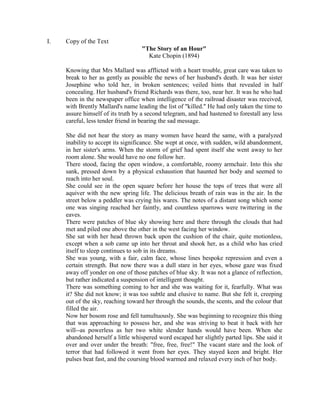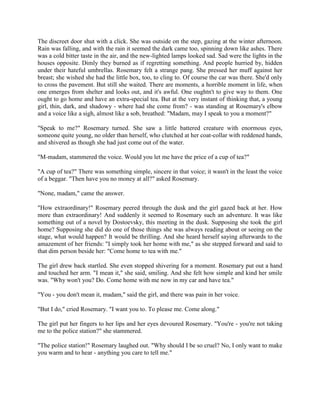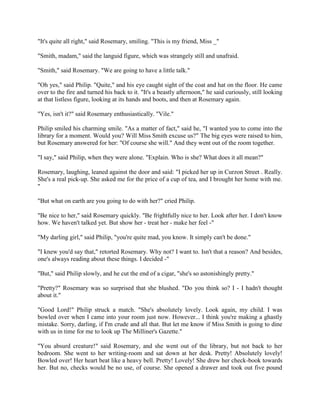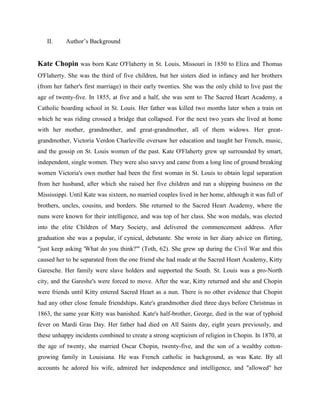The story is about a woman named Mrs. Mallard who is told that her husband has died in a railroad accident. She initially grieves wildly but then goes to her room alone. While sitting in an armchair by the window, she realizes that as a widow she will now be free from her husband. This realization brings her great joy, as she had not always loved her husband. However, when her husband unexpectedly returns home, still alive, the shock of this news coupled with her feelings of freedom and independence cause her to die of heart disease.












